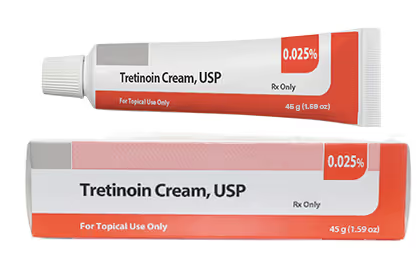Key Takeaways
- There is some evidence to suggest that switching to a vegan diet could improve skin health in a number of ways, including a reduction in acne symptoms. One of these ways is through switching to a diet that does not contain any animal products.
- Intake of meat, particularly proteins rich in leucine, has been linked to the activation of pathways that contribute to the development of acne. This association was found in both animal and human studies.
- Some people who already have acne have reported an increase in the severity of their condition after consuming dairy products such as cheese and skim milk, which come from cows that produce dairy.
The quest for clear skin has led many individuals to explore various dietary approaches, including veganism. The idea of a vegan diet being a natural solution for acne has gained popularity in recent years. But does going vegan truly help treat acne? Let’s delve into the topic and uncover the relationship between diet and skin health.
What is a Vegan Diet?
A vegan diet is one in which no products derived from animals, such as meat, dairy, eggs, or honey, are consumed by the individual following the diet. It is a way of eating that is based on the consumption of plants rather than animals and places an emphasis on fruits, vegetables, legumes, and nuts as the primary sources of nutrition. Veganism is becoming increasingly popular for a variety of reasons, including those related to ethics, the environment, and health.

The Connection Between Your Diet and Your Skin
The impact of diet on skin health has long been a topic of interest. Consumption of certain foods can have an effect on a variety of factors, including oxidative stress, inflammation, and hormone levels, all of which are known to play a role in the development of acne and its severity.
Related Link: Honeydew: Why us?
Is There a Link Between Meat and Acne?
According to the findings of some studies, there may be a connection between eating meat and acne. A protein complex known as the mammalian target of rapamycin complex 1 (mTORC1), which is thought to play a role in the development of acne, is the subject of one theory. Leucine is an amino acid that has been shown to stimulate mTORC1 and is found in high concentrations in animal proteins, including meat. Increased sebum production, increased skin cell growth, and inflammation are all factors that have been linked to the development of acne, and overactivation of the mTORC1 pathway may contribute to all three of these factors. However, additional research is required to establish a definitive link between the consumption of meat and the development of acne breakouts.
Dairy’s Role in Aggravating Acne
It has been hypothesized that dairy products, and particularly cheese and low-fat milk, could be contributing factors in the aggravation of acne. Dairy products, in addition to the high levels of leucine that they contain, may also contain hormones and insulin-like growth factor-1 (IGF-1), both of which have the potential to stimulate mTORC1 and contribute to the development of acne. Dairy consumption does not cause acne in people who have generally clear skin; however, it may make acne breakouts worse for some people who already have acne. More research is needed to determine the precise mechanisms by which dairy products contribute to acne.

The Limitations of Diet in Reducing Acne
Although diet can influence acne, it is important to note that it is not the sole determining factor. Acne is a multifaceted condition influenced by genetics, hormones, skin type, and other environmental factors. While adopting a vegan diet or cutting back on dairy may lead to improvements in some cases, it may not be the ultimate solution for everyone. Each individual’s response to dietary changes can vary, and for some, diet may have minimal impact on acne development.
Looking for a company that makes acne care more effective and accessible to everyone? Check out our prices today.
Additional Ways a Vegan Diet May Help Your Skin
Here are additional ways a vegan diet can contribute to healthy, radiant skin.
Anti-Aging
A vegan diet, which is high in plant-based foods, offers a diverse selection of antioxidants and nutrients that can improve the skin’s overall health and slow the aging process. Antioxidants neutralize the damaging effects of free radicals, lower oxidative stress, and protect against the premature aging of the skin that can be brought on by environmental aggressors like pollution and ultraviolet radiation.
Anti-Inflammatory
Plant-based diets tend to be naturally anti-inflammatory due to their high fiber content and abundance of fruits, vegetables, and whole grains. By reducing inflammation in the body, a vegan diet may help improve skin conditions, including acne.
Antioxidant-Rich
Antioxidants can be found in abundance in plant foods like fruits, vegetables, and nuts, which are the basis of a vegan diet. These potent compounds help shield the skin from the damage that can be caused by free radicals, which in turn promotes a complexion that is healthier and more radiant.
The Vegan Diet and Acne
While the relationship between a vegan diet and acne is complex and requires further research, adopting a vegan lifestyle can offer additional benefits for your skin. A plant-based diet provides an abundance of antioxidants, anti-inflammatory properties, and essential nutrients that can contribute to overall skin health. However, it is crucial to remember that acne is a multifactorial condition, and diet alone may not be a guaranteed solution. Consulting with a dermatologist and developing a comprehensive skincare routine are essential for effectively managing acne.
Want to work with our expert care team to take control of your skin? Get started today.























